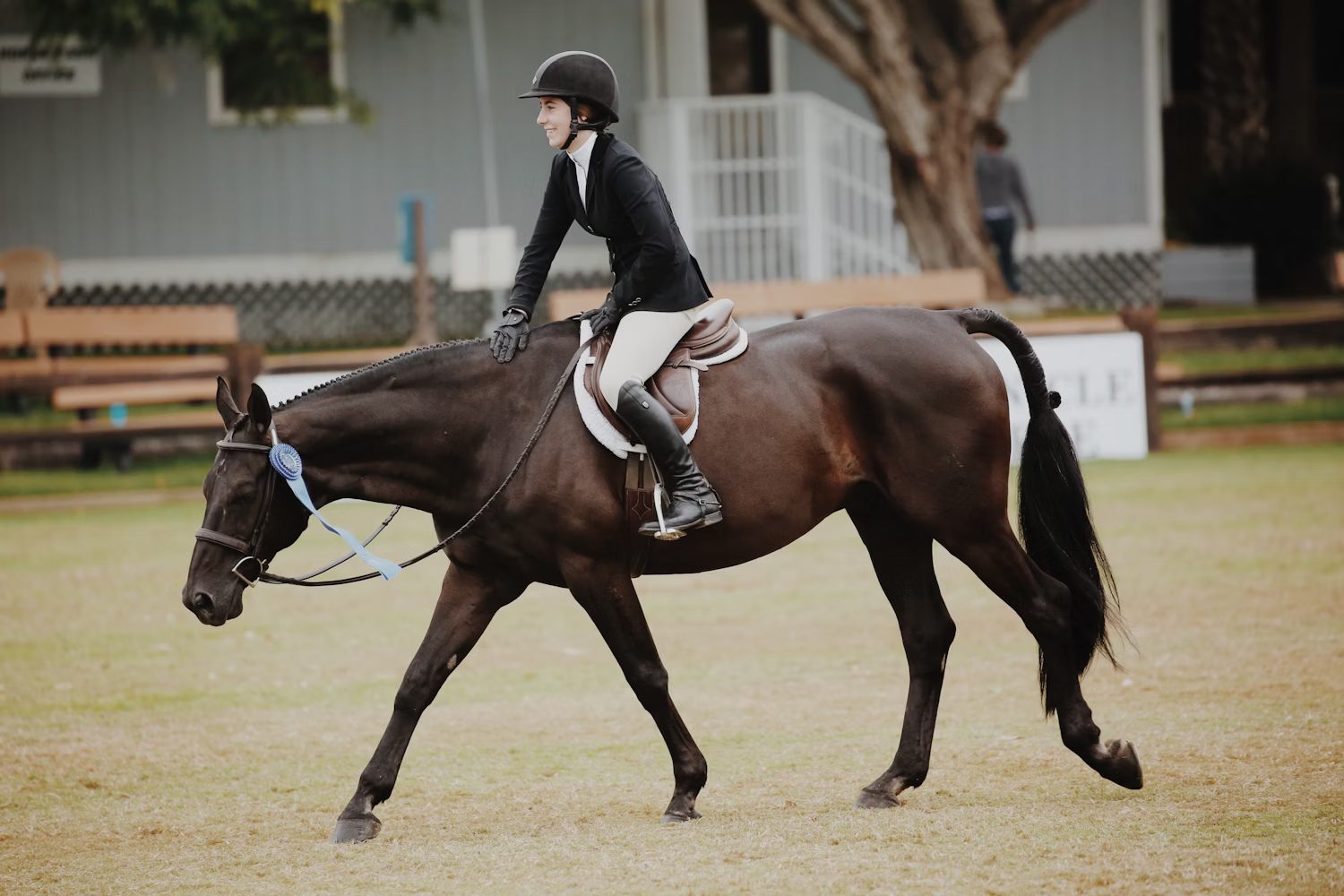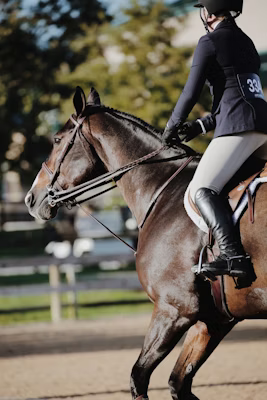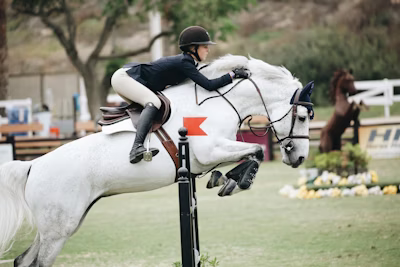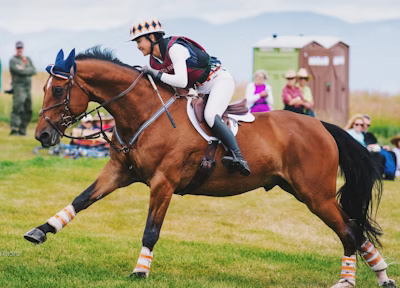How to Get Into Riding

Are you interested in English riding, but not quite sure how to start? You've come to the right place! Let us help you jump in to your new favorite sport!
1. To start, research riding facilities and trainers near you.
The goal when contacting a new trainer is to determine who best suits you. Depending on your area, there should be several trainers and disciplines to choose from. Most importantly when you start as a beginner is finding a trainer you feel safe and connected with. Remember, these trainers are here to make you feel comfortable and safe to allow you to explore the sport on your own terms.
Here are some helpful questions to ask when interviewing trainers:
- Do you have lesson horses for beginners?
- Is rental equipment available (helmets, boots, saddles, etc)?
- What are the priorities of the program (safety, fun, horsemanship, etc)?
- Can we tour the facility before booking a lesson?
- Are there others in my age group in the program?
Ask these questions to be sure you know what to expect:
- How long is the lesson? 30 minutes? One hour?
- If my lesson begins at 10 am, what time should I arrive?
- Will the horse be tacked upon my arrival?
Most beginner lesson programs start with the basics- steering, stopping, and general safety rules. As you become more involved, you will want to consider which discipline to focus on. Some choices include:
- Dressage- Technical flatwork performed in a small arena. Ideal for riders who want to "dance with their horse."
- Hunter/Jumper- Includes 3 varieties. Hunters are judged on beauty and style, ridden over fences mimicking natural obstacles (including flowers, logs, and greenery). Show Jumping is judged on speed and faults, ridden in an arena over bright jumps and technical courses. Equitation is a combination of the two, judged on beauty and style over technical courses.
- Eventing- Includes 3 phases. Dressage, Show Jumping, and Cross Country (a timed event jumping natural obstacles on a course outside of an arena) performed over 3 days. Also known as 3 Day Eventing.
These are all disciplines represented internationally and have individual presence in the Olympic Games. Each discipline has different training styles, tack, and types of horses. We recommend trying a few before deciding which is right for you!

2. How to Dress
When it's time for your first riding lesson, you should communicate with your trainer on how to come prepared. Depending on the trainer, some prefer a strict dress code while others welcome more relaxed attire. Each trainer has their own expectations, but the basics generally apply to any program. A tucked-in polo shirt or long sleeve collared shirt in tan breeches with a belt are the traditional, professional look. If you don't have breeches, long pants are ok too - comfortable jeans or leggings would work!
Most importantly- show up to your lesson with close-toed shoes. Boots are ideal (some trainers provide rental boots). If not, a shoe with a closed toe is a reasonable alternative (no large heels or booties, please!). As you continue riding, we recommend investing in a good pair of riding boots- they are safe, durable, and often well worth the price tag. Several Consignment Shops offer affordable options.

3. Leasing or Buying a Horse
Once you have the basics down , you will likely consider moving on from lesson horses to leasing or owning your own horse! This is an exciting step for all riders. No rider ever forgets their first horse -- whether that's the first leased or owned horse. This special horse will help set you up for the future of the sport and opens the world to the special connection that comes with having a horse of your own. If you're in a quality program with a trainer that genuinely cares for their clients, they will be sure to help you find a partner that is suitable for you in size, ability, breed, and temperament. These are all important aspects to consider and would be best to consult your trainer or professional to help in this process.
- Leasing a horse is a great option if you are looking for a shorter-term commitment or a horse to learn on until you are ready to own your own. Flexible lease and payment terms offer various options to fit in to any budget or time schedule. Leasing can be a great option if you are on a smaller budget, but would like to have one horse to consistently learn and improve with.
- Making the choice to buy your own horse, however, has major perks. While it is no secret that it is an expensive endeavor, life lessons and achievements can far outweigh the price tag. Owning your horse is a large responsibility as you are in charge of the horse's shoeing, vet bills, insurance, boarding, etc. The expense and commitment is worth it when you can make long-term goals and experience the growing partnership unique to you two. When you own a horse, you have the decision power when it comes to care, showing, and general welfare (we always recommend working with a reputable trainer to guide your decisions!), whereas a lease option may be more limiting. If you're planning on buying a horse, remember that performing a proper pre-purchase exam is important to ensure the horse is in good health and will be suitable for your goals.

Why We Do This
It can be overwhelming to enter an industry that you have little knowledge about. Luckily, the equestrian world is full of friendly-faces who want to help you succeed and enjoy the sport as much as they do! Riding opens doors to new friends and new experiences. Meeting other riders who share your passion goes far beyond the stable, and opens the door for opportunities in all aspects of life.
The life lessons you learn along the way are unforgettable- You will learn to trust like never before (in your horse and your support system). You will learn that patience is a virtue (especially if you ride a mare). You will learn what passion feels like, and that equestrians are a unique breed of people who are intensely driven and hard working. Equestrians have purpose and goals. We support one another in good times and bad and are a group connected by far more than horse shows and ribbons. Many people go through life searching for what we have already!
We can go on forever about how much horses have enriched our lives, and why we keep coming back each day, but you won't understand until you could experience it firsthand! Riding is extremely rewarding in both physical achievements and personal victories, and provides purpose and connection. Get ready for the ride of your life!
